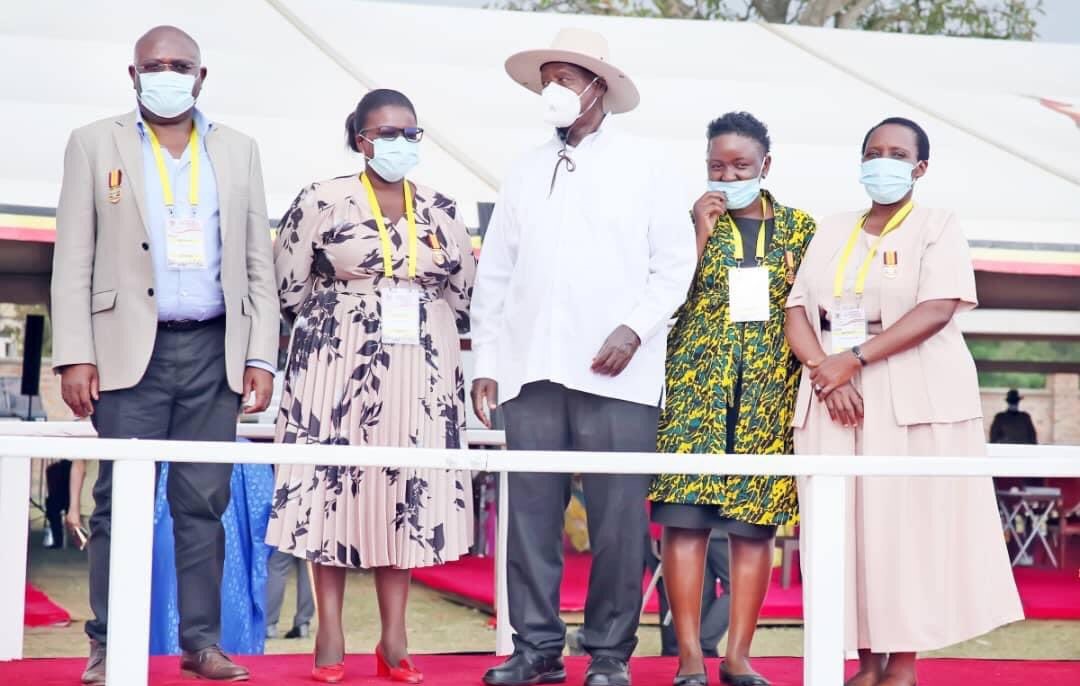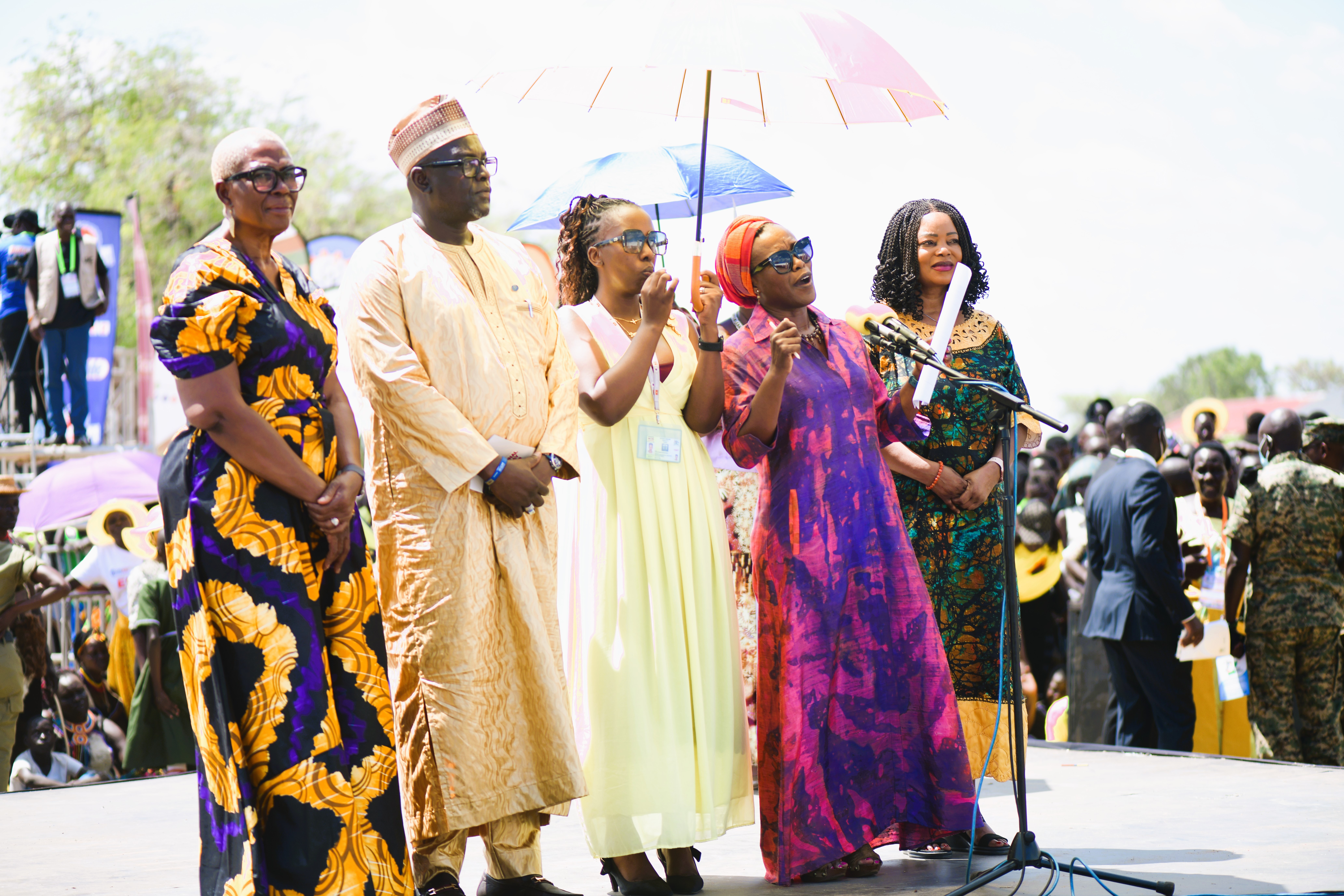International Women’s Day Rings in a Call for Economic Prosperity to Address Women's Challenges in Uganda
Date:
On Friday March 8, 2024, all paths converged upon Boma Grounds, Katakwi District, eastern Uganda, where President Yoweri Museveni stood as the distinguished guest of honor at the annual International Women’s Day celebration. The event was attended by several government ministers, religious and cultural leaders as well as envoys and UN agency representatives.

Amidst the spirited atmosphere, this year’s event embraced the resonating theme: “Invest in Women: Accelerate Progress,” echoing the national call to action, “Accelerating Gender Equality Through Women's Economic Empowerment.” The themes emphasized the need to drive financial resources, policy support, and commitments towards achieving gender equality and are aligned with the priority theme of the 68th Session of the Commission on the Status of Women (CSW68) held in New York from 11 to 22 March 2024: ‘Accelerating the achievement of gender equality and the empowerment of all women and girls by addressing poverty and strengthening institutions and financing with a gender perspective.
His Excellency President Yoweri Museveni was guided on a tour of women group exhibitors some of whom are supported by UN Women in agri-business and in his speech, H.E. Museveni emphasized the need for Uganda citizens to work towards achieving wealth for all in order to deal with the challenges affecting women.
“Whereas we are moving well, we need to increase the speed if we are to enable an equal distribution of wealth for all. Once we achieve that, we shall not be having challenges facing women. We shall not be selling our girls in form of bride price,” the President said.

Susan Namondo, UN Resident Coordinator in Uganda, who represented other UN agencies at the event, commended the government of Uganda’s robust legal framework for the empowerment of women and girls, which commits to advancing inclusive and equitable growth.
She mentioned that this has included the adoption of the Public Procurement and Disposal of Public Assets Amendment Act (2021); the National Social Security Fund (NSSF) Amendment Act (2022); the Succession Amendment Act (2022); the Market Act (2023); and the Employment Amendment Bill (2023) – now pending the President’s ascension.
“Such legislative strides advance women's rights in the realm of work, from enhancing women's participation in public procurements to fortifying social protection measures and championing women's leadership in the workplace,” she said.
Betty Amongi, the minister of Gender, Labour and Social Development, said that the government strategy and approach on women has always been that of tackling the root causes of women’s disempowerment, focusing on gender-transformative strategies and approaches.
“Some of our interventions seek to influence formal institutions, laws, policies and practices and to support and promote women’s rights to economic, social and political empowerment as well as the strengthening of institutional capacity and accountability,” she said.
Amongi mentioned that women’s empowerment requires a comprehensive package of interventions that are context specific, combining enabling policies and specific and carefully targeted programs working at all levels.
Some of the successes have been around working in partnership with some banks to establish specific women in business programs aimed at improving at improving women’s access to finance and financial services and products that address their needs.